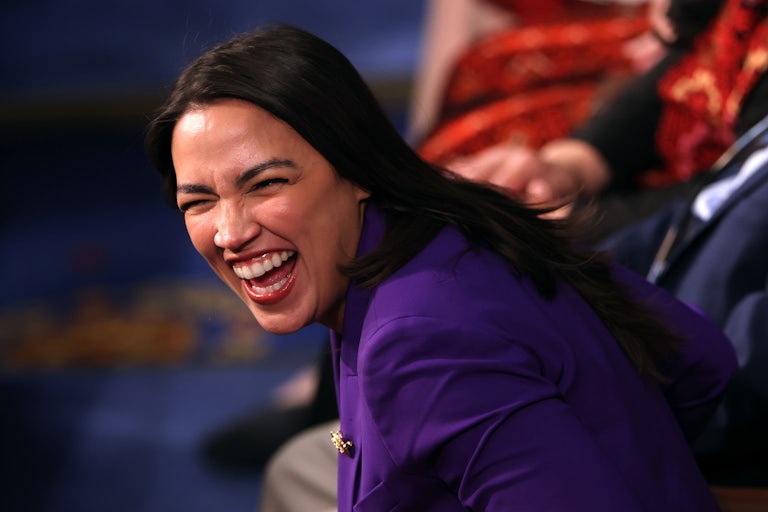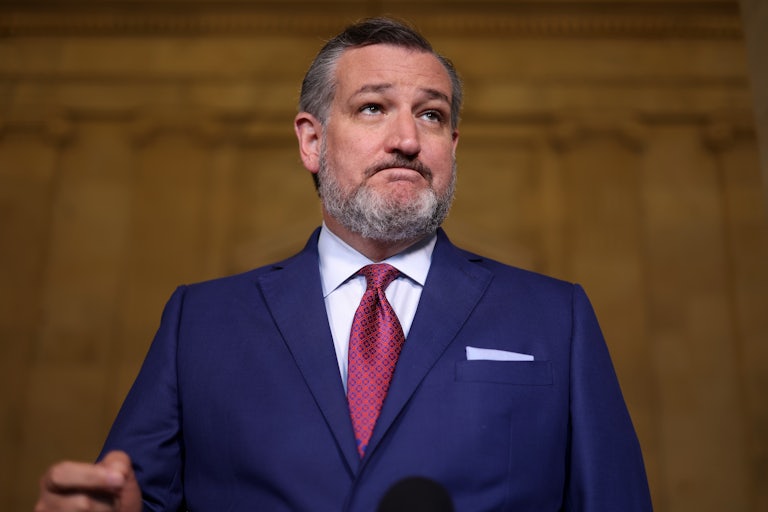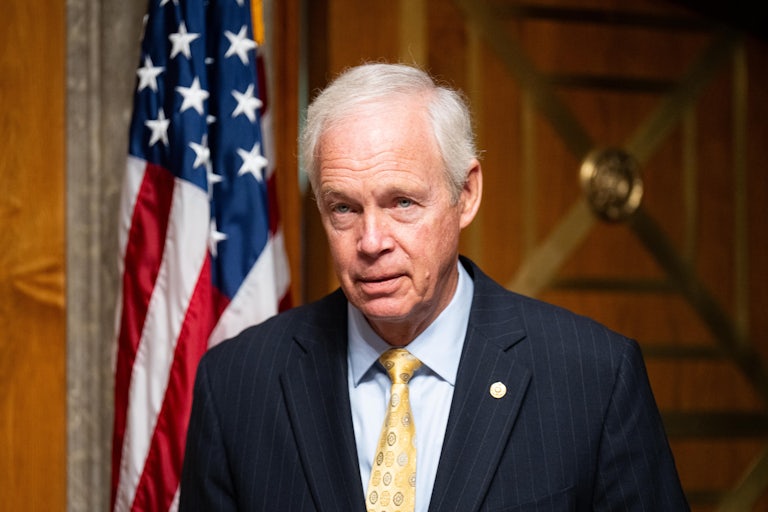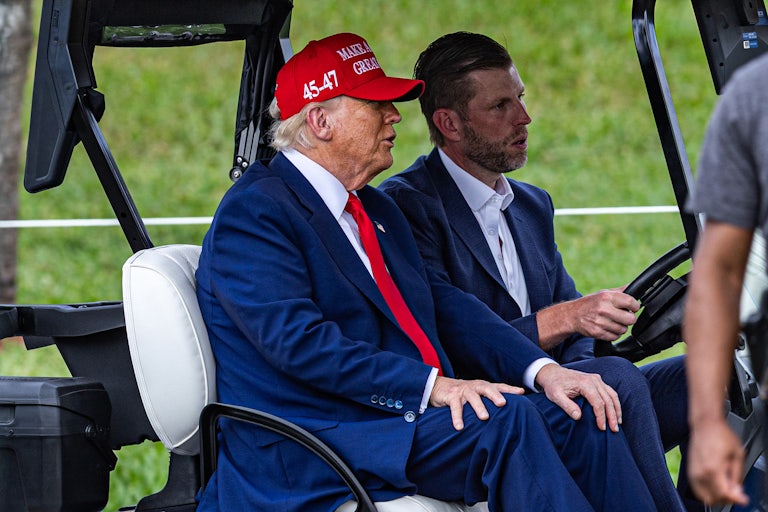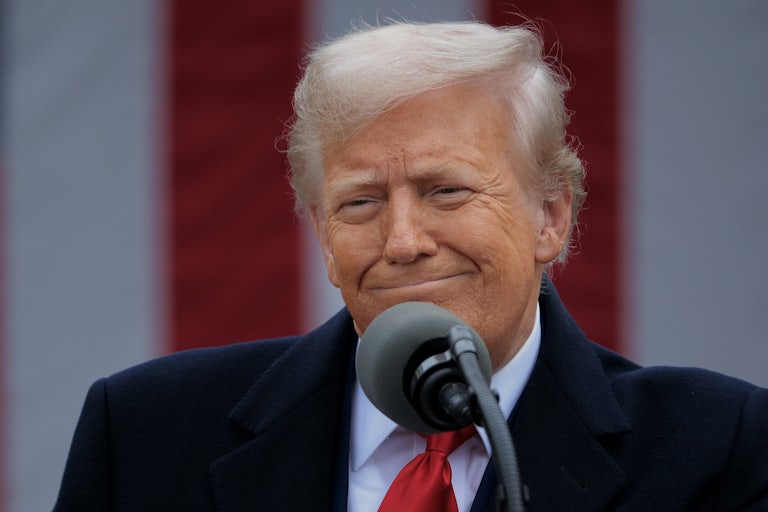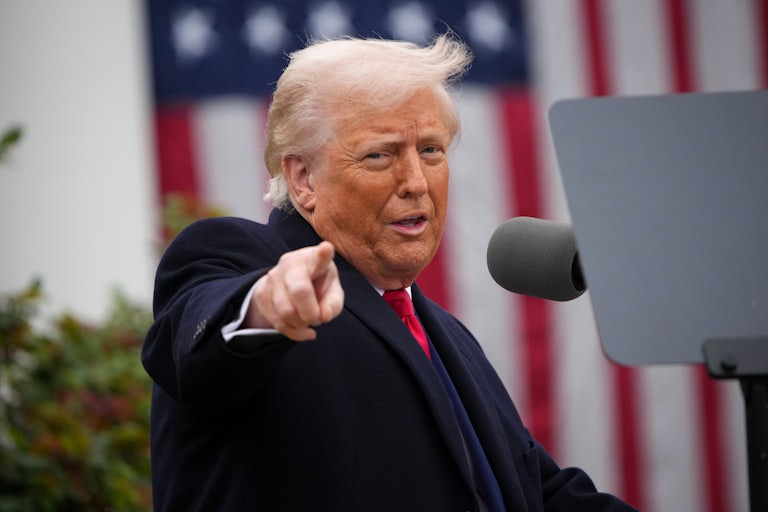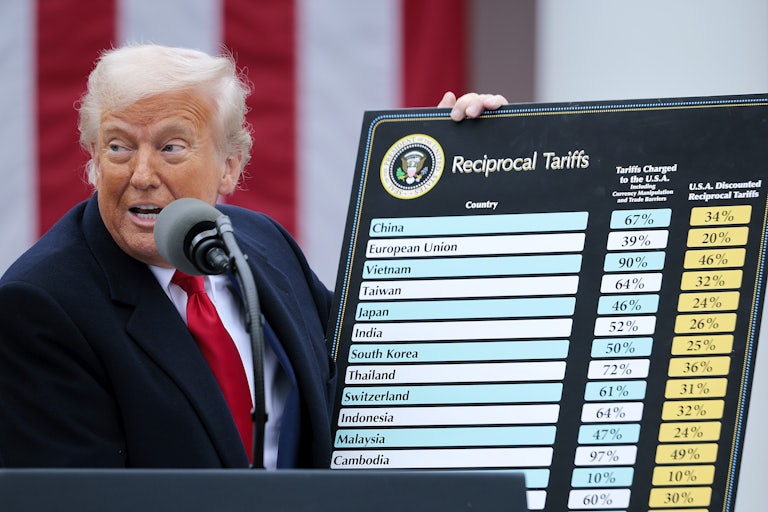Trump’s New Fight With Fed Exposes Just How Clueless He Is
Donald Trump may not actually understand how the economy works.
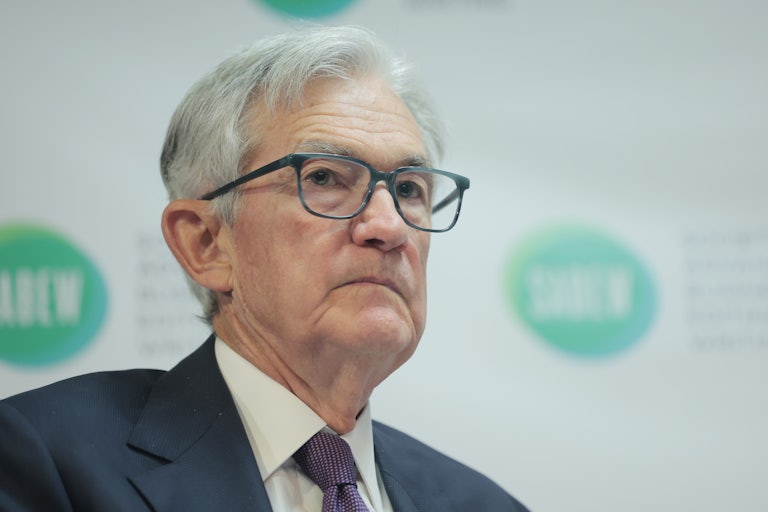
Donald Trump is looking for a scapegoat to redirect America’s tariff fury.
The president attempted to influence Federal Reserve Chairman Jerome Powell ahead of the head banker’s remarks Friday, insisting that the chairman should cut interest rates.
“This would be a PERFECT time for Fed Chairman Jerome Powell to cut Interest Rates,” Trump posted on Truth Social. “He is always ‘late,’ but he could now change his image, and quickly.”
Trump then claimed that energy prices, interest rates, inflation, and egg prices are down. (Energy prices, interest rates, and inflation are actually not down. Egg prices, however, are $3 a dozen again.) The president also claimed that jobs are “up,” likely referring to the jobs report he celebrated earlier Friday that assessed positive job growth in the U.S. economy before he implemented tariffs that cratered the stock market.
“A BIG WIN for America,” Trump wrote. “CUT INTEREST RATES, JEROME, AND STOP PLAYING POLITICS!”
Rate cuts, however, would not be an imminent and forthcoming solution to the market chaos, according to the chairman.
“We don’t need to be in a hurry,” Powell said later Friday. “We are well positioned to wait for greater clarity before considering any adjustments to our policy stance. It is too soon to say what will be the appropriate path for monetary policy.”
Overall, Powell’s speech did not spell good news in the wake of Trump’s sweeping tariff plan. Powell described Trump’s tariffs as “significantly larger than expected” and predicted that the levies would contribute to—at minimum—a “temporary rise in inflation,” though he noted that the “effects could be more persistent.”
The decision to cut interest rates or not was a major sticking point between Trump and Powell toward the end of Trump’s first term, when the Covid-19 pandemic sent the economy on a roller-coaster ride.
Economists have predicted that the tariffs could throw the U.S. into a recession. Trump’s plan has been interpreted around the globe as an economic attack, forcing the leaders of some of America’s longest-term allies to turn away from U.S. leadership.
“The global economy is fundamentally different today than it was yesterday. The system of global trade anchored on the United States … is over,” Canadian Prime Minister Mark Carney said Thursday, as if delivering a eulogy for the two nations’ relationship, the day after Trump unveiled the plan.
“Our old relationship of steadily deepening integration with the United States is over,” Carney said. “The 80-year period when the United States embraced the mantle of global economic leadership, when it forged alliances rooted in trust and mutual respect, and championed the free and open exchange of goods and services, is over.”
